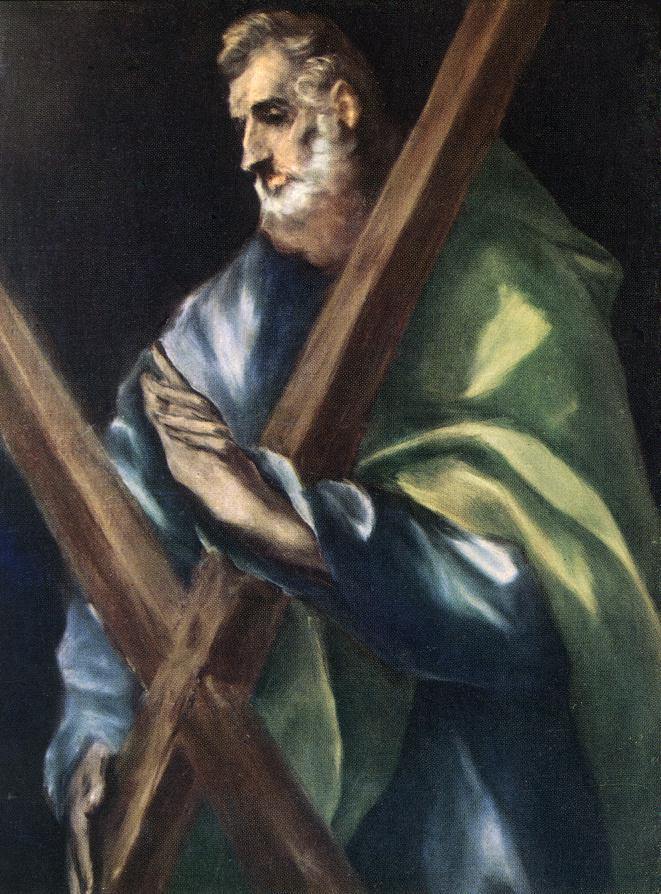Description
The painting "Apostle Saint Andrew" by El Greco is a masterpiece of the Spanish Renaissance that has captivated art lovers for centuries. This work represents the Christian saint Saint Andrew, one of the twelve apostles of Jesus, who was crucified on an X-shaped cross.
El Greco's artistic style is unmistakable in this work, with its characteristic technique of elongating the figures and the use of intense and contrasting colours. The composition of the painting is impressive, with Saint Andrew at the center of the work, surrounded by a dramatic landscape and celestial lighting that highlights his figure.
Color is another prominent aspect of this work, with a palette of warm and cold tones that create a mystical and spiritual atmosphere. The use of light and shadow is also impressive, creating a three-dimensional effect that makes the figure of Saint Andrew appear to step out of the painting.
The history of the painting is fascinating, since it is believed that it was commissioned by Cardinal Tavera for the chapel of the University of Toledo in the 16th century. However, the work was rejected by the university and ended up in the hands of a private collector. It was rediscovered in the 19th century and is now in the Prado Museum in Madrid.
In addition to its aesthetic beauty, there are little-known aspects of this work that make it even more interesting. For example, it is believed that El Greco used his own face as a model for the figure of Saint Andrew, giving the work a personal and emotional touch.
In summary, the painting "Apostle Saint Andrew" by El Greco is an impressive work of art that combines technique, composition, color and spirituality in a unique way. Its history and little-known aspects make it even more fascinating and worthy of admiration in any art gallery.

